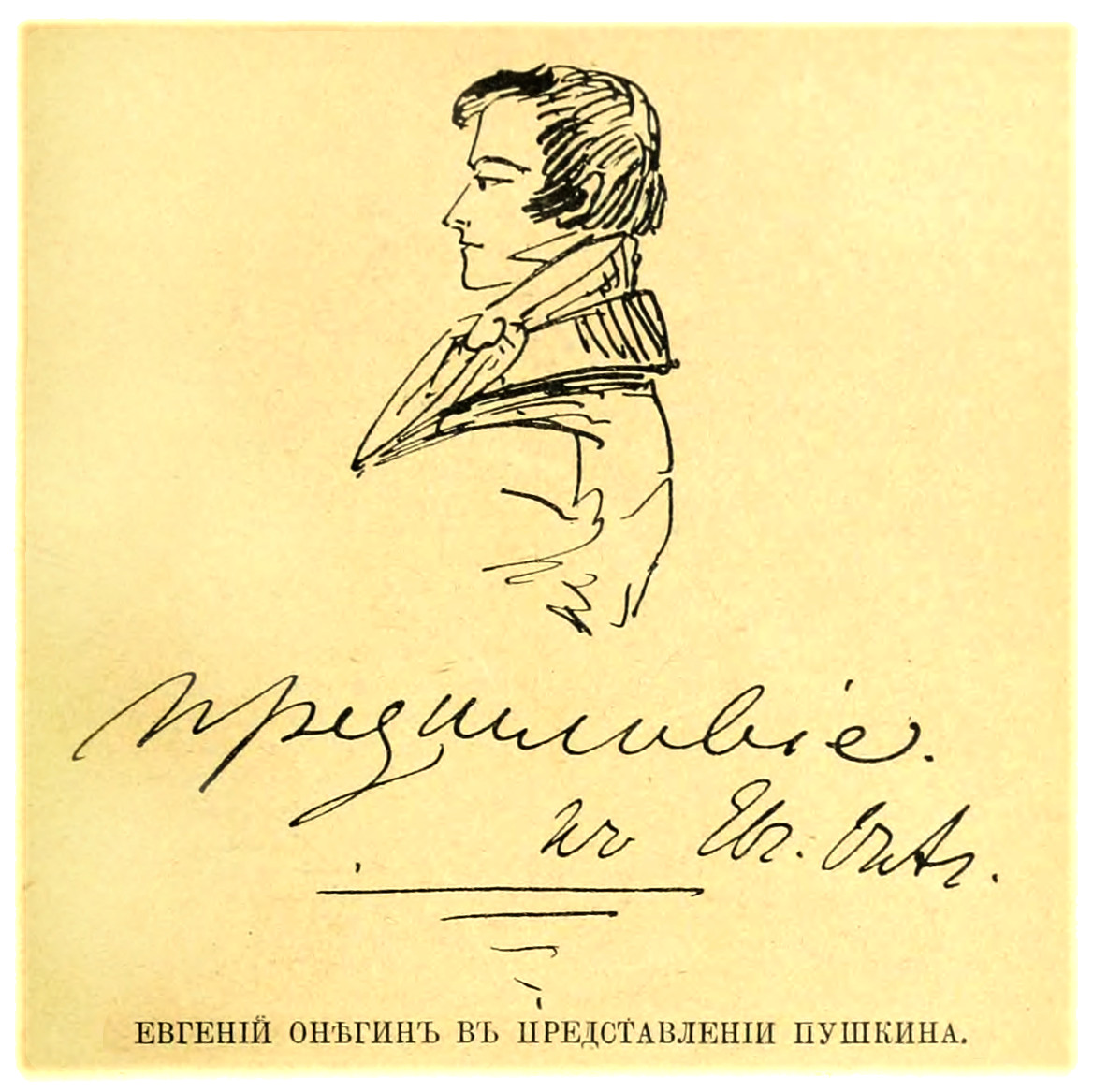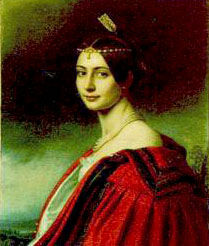|
Lyubov Streicher
Lyubov Lvovna Streicher (3 March 1888 - 31 March 1958) was a Russian composer, teacher, and violinist, as well as a founding member of the Society for Jewish Folk Music. Streicher was born in Vladikavkaz. She graduated from the St. Petersburg Conservatory, where she studied with Leopold Auer, Mikhail Gnessin, Anatoly Lyadov, and Maximilian Steinberg. In 1908, she joined Gnessin and Lazare Saminsky as founding members of the Society for Jewish Folk Music in St. Petersburg. The Society was part of the Jewish art music movement. It promoted Jewish folk music through research, composition, performance, and publishing. Branches of the Society were established in several Russian cities, and it remained active through 1919. Compositions At least one of Streicher’s compositions, “A Simple Soviet Man,” was recorded commercially by pianist Maria Yudina in 1937. Streicher’s compositions included: Ballet Noch Fialki Chamber ''Armenian String Quartet'' ''Improvisation'' (cello ... [...More Info...] [...Related Items...] OR: [Wikipedia] [Google] [Baidu] |
Society For Jewish Folk Music
The Jewish art music movement began at the end of the 19th century in Russia, with a group of Russian Jewish classical composers dedicated to preserving Jewish folk music and creating a new, characteristically Jewish genre of classical music. The music it produced used Western classical elements, featuring the rich chromatic harmonies of Russian late Romantic music, but with melodic, rhythmic and textual content taken from traditional Jewish folk or liturgical music. The group founded the St. Petersburg Society for Jewish Folk Music, a movement that spread to Moscow, Poland, Austria, and later Palestine and the United States. Although the original society existed formally for only 10 years (from 1908 to 1918), its impact on the course of Jewish music was profound. The society, and the art music movement it fostered, inspired a new interest in the music of Eastern European Jewry throughout Europe and America. It laid the foundations for the Jewish music and Klezmer revival in th ... [...More Info...] [...Related Items...] OR: [Wikipedia] [Google] [Baidu] |
Vasily Lebedev-Kumach
Vasily Ivanovich Lebedev-Kumach () Moscow, — 20 February 1949) was a Soviet poet and lyricist. Biography Vasily was born August 5, 1898 to a shoe maker. He went on to work in the printing department of the Revolutionary Military Council, moving on to ROSTO. He attended Moscow State University. He adopted the nickname Kumach, a Turkish name for a variety of red cloth used to symbolize revolution. In time the nickname was added to his surname. Vasily's satirical verses published in such papers as ''Rabochaia gazeta'', ''Krest’ianskaia gazeta'', ''Gudok'', and ''Krokodil'' led to his growing popularity. He also wrote songs for the film '' Late for a Date'' (1936). Vasily wrote numerous songs, the most famous being probably ''Священная война'' ( Svyaschennaya Voyna, 'The Sacred War'), ''Песня о Родине'' (A Song About the Motherland), ''Гимн партии большевиков'' (Hymn of the Bolshevik Party) and ''Как много деву� ... [...More Info...] [...Related Items...] OR: [Wikipedia] [Google] [Baidu] |
1888 Births
In Germany, 1888 is known as the Year of the Three Emperors. Currently, it is the year that, when written in Roman numerals, has the most digits (13). The next year that also has 13 digits is the year 2388. The record will be surpassed as late as 2888, which has 14 digits. Events January–March * January 3 – The 91-centimeter telescope at Lick Observatory in California is first used. * January 12 – The Schoolhouse Blizzard hits Dakota Territory, the states of Montana, Minnesota, Nebraska, Kansas, and Texas, leaving 235 dead, many of them children on their way home from school. * January 13 – The National Geographic Society is founded in Washington, D.C. * January 21 – The Amateur Athletic Union is founded by William Buckingham Curtis in the United States. * January 26 – The Lawn Tennis Association is founded in England. * February 6 – Gillis Bildt becomes Prime Minister of Sweden (1888–1889). * February 27 – In West Or ... [...More Info...] [...Related Items...] OR: [Wikipedia] [Google] [Baidu] |
String Quartet Composers
String or strings may refer to: *String (structure), a long flexible structure made from threads twisted together, which is used to tie, bind, or hang other objects Arts, entertainment, and media Films * ''Strings'' (1991 film), a Canadian animated short * ''Strings'' (2004 film), a film directed by Anders Rønnow Klarlund * ''Strings'' (2011 film), an American dramatic thriller film * ''Strings'' (2012 film), a British film by Rob Savage * '' Bravetown'' (2015 film), an American drama film originally titled ''Strings'' * ''The String'' (2009), a French film Music Instruments * String (music), the flexible element that produces vibrations and sound in string instruments * String instrument, a musical instrument that produces sound through vibrating strings ** List of string instruments * String piano, a pianistic extended technique in which sound is produced by direct manipulation of the strings, rather than striking the piano's keys Types of groups * String band, musical ... [...More Info...] [...Related Items...] OR: [Wikipedia] [Google] [Baidu] |
Russian Women Composers
Russian(s) refers to anything related to Russia, including: *Russians (, ''russkiye''), an ethnic group of the East Slavic peoples, primarily living in Russia and neighboring countries *Rossiyane (), Russian language term for all citizens and people of Russia, regardless of ethnicity *Russophone, Russian-speaking person (, ''russkogovoryashchy'', ''russkoyazychny'') * Russian language, the most widely spoken of the Slavic languages * Russian alphabet * Russian cuisine *Russian culture *Russian studies Russian may also refer to: *Russian dressing *''The Russians'', a book by Hedrick Smith *Russian (comics), fictional Marvel Comics supervillain from ''The Punisher'' series * Russian (solitaire), a card game * "Russians" (song), from the album ''The Dream of the Blue Turtles'' by Sting *"Russian", from the album ''Tubular Bells 2003'' by Mike Oldfield *"Russian", from the album '' '' by Caravan Palace * Nik Russian, the perpetrator of a con committed in 2002 *The South African name ... [...More Info...] [...Related Items...] OR: [Wikipedia] [Google] [Baidu] |
Alexander Pushkin
Alexander Sergeyevich Pushkin (; rus, links=no, Александр Сергеевич ПушкинIn pre-Revolutionary script, his name was written ., r=Aleksandr Sergeyevich Pushkin, p=ɐlʲɪkˈsandr sʲɪrˈɡʲe(j)ɪvʲɪtɕ ˈpuʂkʲɪn, a=ru-Pushkin.ogg; ) was a Russian poet, playwright, and novelist of the Romantic era.Basker, Michael. Pushkin and Romanticism. In Ferber, Michael, ed., ''A Companion to European Romanticism''. Oxford: Blackwell, 2005. He is considered by many to be the greatest Russian poetShort biography from University of Virginia . Retrieved 24 November 2006.Allan Rei ... [...More Info...] [...Related Items...] OR: [Wikipedia] [Google] [Baidu] |
Eugene Onegin
''Eugene Onegin, A Novel in Verse'' (Reforms of Russian orthography, pre-reform Russian: ; post-reform rus, Евгений Оне́гин, ромáн в стихáх, p=jɪvˈɡʲenʲɪj ɐˈnʲeɡʲɪn, r=Yevgeniy Onegin, roman v stikhakh) is a novel in verse written by Alexander Pushkin. ''Onegin'' is considered a classic of Russian literature, and its eponymous protagonist has served as the model for a number of Russian literary heroes (so-called Superfluous man, ''superfluous men''). It was published in serial form between 1825 and 1832. The first complete edition was published in 1833, and the currently accepted version is based on the 1837 publication. Almost the entire work is made up of 389 fourteen-line stanzas (5,446 lines in all) of iambic tetrameter with the unusual rhyme scheme , where the uppercase letters represent feminine rhymes while the lowercase letters represent masculine rhymes. This form has come to be known as the "Onegin stanza" or the "Pushkin sonnet". ... [...More Info...] [...Related Items...] OR: [Wikipedia] [Google] [Baidu] |
Paul Verlaine
Paul-Marie Verlaine (; ; 30 March 1844 – 8 January 1896) was a French poet associated with the Symbolist movement and the Decadent movement. He is considered one of the greatest representatives of the '' fin de siècle'' in international and French poetry. Biography Early life Born in Metz, Verlaine was educated at the ''Lycée Impérial Bonaparte'' (now the Lycée Condorcet) in Paris and then took up a post in the civil service. He began writing poetry at an early age, and was initially influenced by the Parnassien movement and its leader, Leconte de Lisle. Verlaine's first published poem was published in 1863 in ''La Revue du progrès'', a publication founded by poet Louis-Xavier de Ricard. Verlaine was a frequenter of the salon of the Marquise de Ricard (Louis-Xavier de Ricard's mother) at 10 Boulevard des Batignolles and other social venues, where he rubbed shoulders with prominent artistic figures of the day: Anatole France, Emmanuel Chabrier, inventor-poet and hum ... [...More Info...] [...Related Items...] OR: [Wikipedia] [Google] [Baidu] |
Fyodor Tyutchev
Fyodor Ivanovich Tyutchev ( rus, Фёдор Ива́нович Тю́тчев, r=Fyódor Ivánovič Tyútčev, links=1, p=ˈfʲɵdər ɪˈvanəvʲɪt͡ɕ ˈtʲʉt͡ɕːɪf; Pre-Reform orthography: ; – ) was a Russian poet and diplomat. Life Tyutchev was born into a Russian noble family in the Ovstug family estate near Bryansk (modern-day Zhukovsky District, Bryansk Oblast of Russia). His father Ivan Nikolaevich Tyutchev (1768—1846) was a court councillor who served in the Kremlin Expedition that managed all building and restoration works of Moscow palaces. One of Ivan's sister (1774—1837), was a hegumenia famous for founding the Borisoglebsky Anosin Women's Monastery.''Ivan Aksakov (1997)''. Fyodor Ivanovich Tyutchev's Biography. — Moscow: AO Book and Business, p. 172-173 ''Gennady Chagin (2004)''. Fyodor Ivanovich Tyutchev. — Moscow: Russkiy mir, p. 17 The Tyutchevs traced their roots to Zakhariy Tutchev mentioned in ''The Tale of the Rout of Mamai'', a ... [...More Info...] [...Related Items...] OR: [Wikipedia] [Google] [Baidu] |
Elizaveta Polonskaya
Elizaveta Grigorevna Polonskaya ( rus, Елизаве́та Григо́рьевна Поло́нская, p=jɪlʲɪzɐˈvʲɛtə pɐˈlonskəjə), born Movshenson (russian: Мовшенсо́н; – January 11, 1969), was a Russian Jewish poet, translator, and journalist, the only female member of the Serapion Brothers. Early life Elizaveta (Liza) Movshenson was born in Warsaw (in Congress Poland, part of the Russian Empire); her father, Grigory Lvovich Movshenson, was an engineer who had graduated with high honors from the Riga Polytechnical Institute and her mother, Charlotta Ilinichna (née Meylakh), came from a large Jewish merchant family in Białystok. Her family's first language was Russian, but Liza was also taught French, German, Italian, and English.Davis, ''Serapion Sister'', p. 18. Because of her father's status, he was granted the right to live outside the Pale of Settlement, and the family moved quite often. Just after Liza's birth, they moved to Łódź, where s ... [...More Info...] [...Related Items...] OR: [Wikipedia] [Google] [Baidu] |
Vladikavkaz
Vladikavkaz (russian: Владикавка́з, , os, Дзæуджыхъæу, translit=Dzæwdžyqæw, ;), formerly known as Ordzhonikidze () and Dzaudzhikau (), is the capital city of the Republic of North Ossetia-Alania, Russia. It is located in the southeast of the republic at the foothills of the Caucasus Mountains, situated on the Terek River. The city's population was 311,693 as of the 2010 Census. As a result, Vladikavkaz is one of the most populous cities in the North Caucasus region. The city is an industrial and transportation centre. Manufactured products include processed zinc and lead, machinery, chemicals, clothing and food products. Etymology From 1931 to 1944 and from 1954 to 1990, its name in both Russian and Ossetic languages was ''Ordzhonikidze'' () (after Sergo Ordzhonikidze, a Georgian Bolshevik), and from 1944 to 1954 it was officially called ''Dzaudzhikau'' () in Russian and () in Ossetic. ''Vladikavkaz'' resumed its old Russian name, in 1990, shortly ... [...More Info...] [...Related Items...] OR: [Wikipedia] [Google] [Baidu] |




